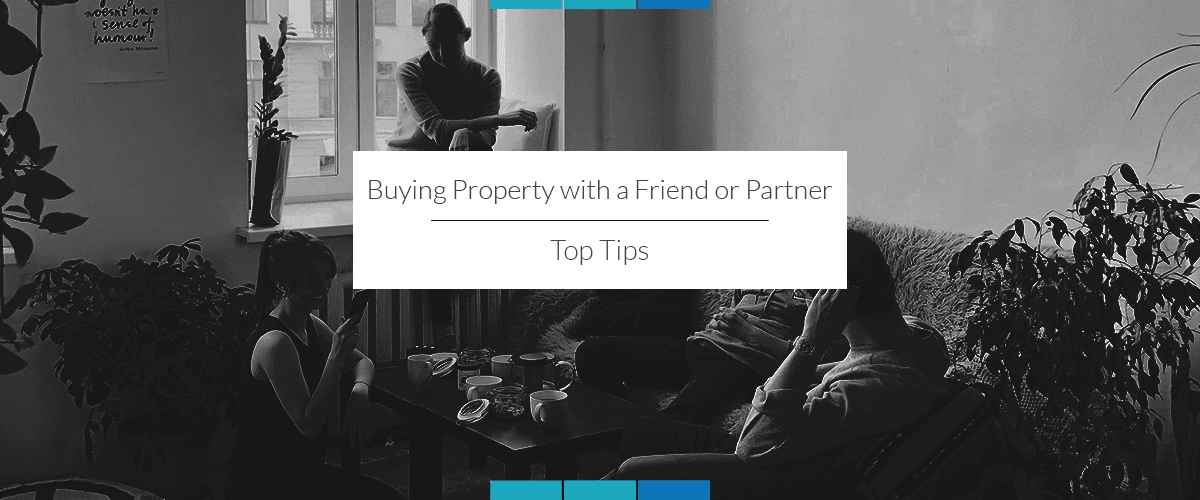If you would like to speak to one of our experts regarding your legal matter simply complete the form below and we will call you back.
Top tips if you’re buying a property with a friend or partner

For many people, buying a property with a friend, group of friends or partner is the only option because of property prices, tight lending restrictions and the need for a large deposit. If you are going into a mortgage jointly, make sure you are both aware of your rights and obligations.
The purpose of this blog is to provide information and discussion. Nothing on this blog should be relied upon as a substitute for legal advice from a qualified solicitor regarding any actual legal issue or dispute. Nothing on this website should be construed as legal advice or perceived as creating a solicitor-client relationship. Please note that we cannot give advice on individual’s situations or problems on this blog.
Types of Ownership
You can own property as either ‘joint tenants’ or ‘tenants in common’. The type of ownership affects what you can do with the property if your relationship with a joint owner breaks down, or if one owner dies. As joint tenants, you have equal rights to the whole property and the property is automatically passed to the other owners if you die. This means individual owners can’t pass what they consider ‘their share’ of the property to a beneficiary in their will. Joint tenants must act as one in the eyes of the law. For example, individual tenants would not have the option of only mortgaging their share of the property. All of the tenants have to take out a joint mortgage. As tenants in common, you can own different shares of the property and the property does not automatically go to the other owners if you die. Owners can pass ‘their share’ of the property to a beneficiary in their will or the rule of intestacy can apply. Up to 4 people can jointly be registered as tenants in common for an individual property. This is a popular choice for friends or relatives who are buying together. Joint owners have a legal right to stay in their home unless a court order rules otherwise. If one of the owners wants to sell the property or take a loan out against its value all of the owners have to give their consent, unless a court order rules otherwise.How can I protect the money I put in?
You may wish to have a Declaration of Trust drawn up when purchasing a property to reflect that one of you holds a greater interest in the property over the other, such as where one party has put a greater deposit down or intends to contribute more towards the mortgage. Creating this declaration of trust when purchasing is important when the property is sold as it ensures that each homeowner gets a fair portion of what they put into the property.What happens if I’m a joint tenant or a tenant in common and the other tenants stop meeting the mortgage payments?
A mortgage lender will always insist that borrowers are ‘jointly and severally’ liable. This means that if one of you stops paying his or her part of the mortgage the other (or others) will have to pay the full amount.Who must pay off the mortgage if you decide to go your separate ways?
A cohabitation agreement can specify who should contribute what, including what proportion should be paid towards the mortgage. This can provide certainty to the individuals about where they stand in the event of a relationship breakdown. There is a common misconception that a cohabitation agreement, much like a prenuptial agreement, is legally binding. This is not the case, at least not in the jurisdiction of England and Wales. Whilst they are lawful, they are governed by the ordinary rule of a contract which means the individual terms or agreement can be challenged in court. If you jointly own your home, you have several options about what to do with it when you separate. You might decide to:- Sell the home and both of you move out. You could use the money you’ve raised to put towards buying another home for each of you if you can afford to do this.
- Arrange for one of you to buy the other out.
- Keep the home and not change who owns it. One partner could continue to live in it, perhaps until your children are 18 or leave school.
- Transfer part of the value of the property from one partner to the other so that your children have somewhere to live. The partner who gave up a share of their ownership rights would keep a stake or ‘interest’ in the home. This means that when it is sold he or she will receive a percentage of its value.
The purpose of this blog is to provide information and discussion. Nothing on this blog should be relied upon as a substitute for legal advice from a qualified solicitor regarding any actual legal issue or dispute. Nothing on this website should be construed as legal advice or perceived as creating a solicitor-client relationship. Please note that we cannot give advice on individual’s situations or problems on this blog.
